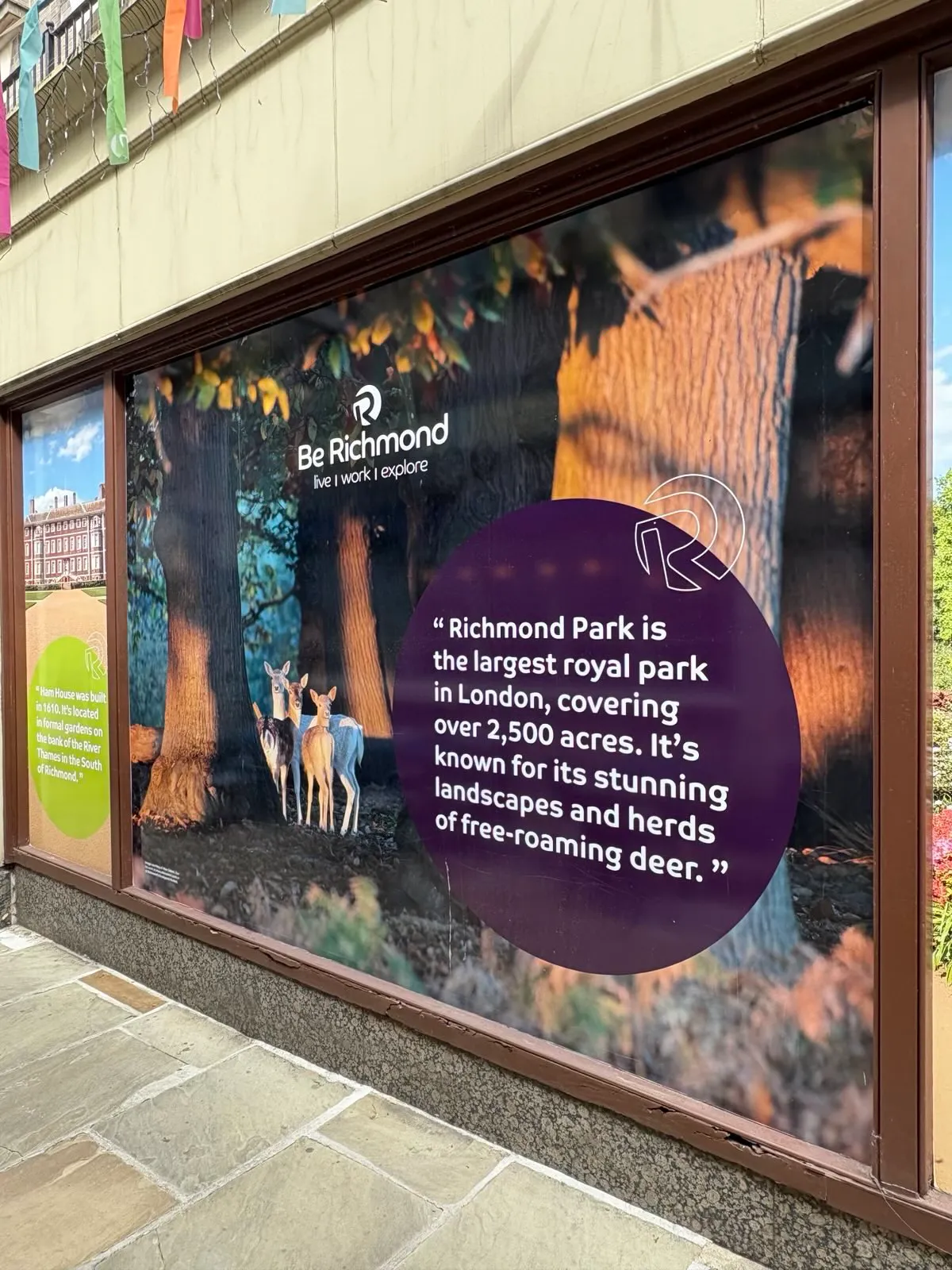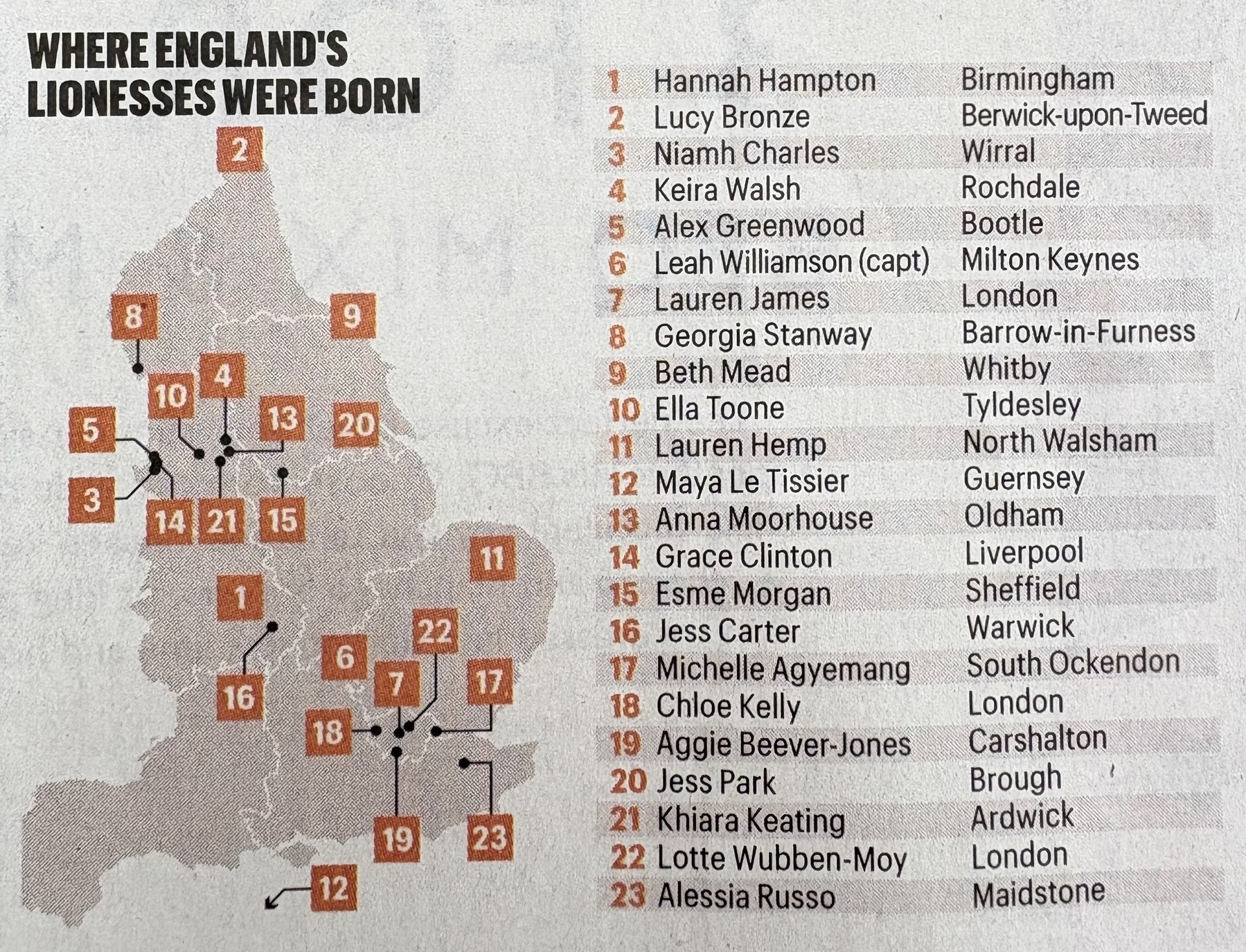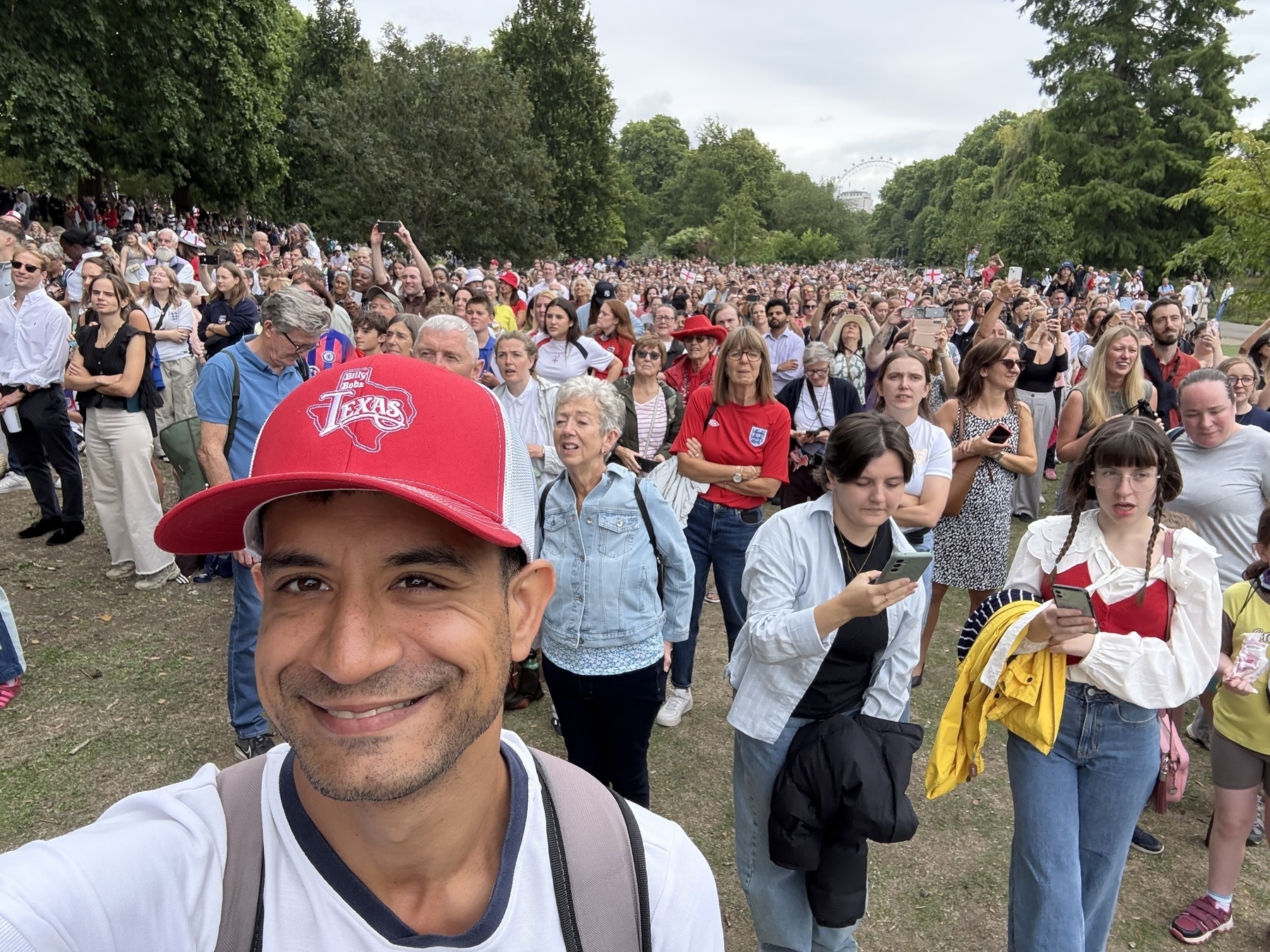On class divide & the England Women’s football team
I’ve been thinking a bit about class structures, and I’ve been running various searches online this morning.
I’ve discovered that there are fewer classes in the US than the UK, even though one might expect the opposite, given the relative size and population of the two countries.
The scale between the two countries never ceases to amaze me. For some basic context, the population of the UK stands at about 68 million, with a land mass of roughly 244,000 square kilometers.
The population of the US is estimated to be around 340 million (about 5x more than the UK), whilst its land mass is 9.1 million square kilometres (about 37x more than the UK).
The population of Texas alone is about 30 million – and that single state is bigger than the UK.
Though, I did learn a few things about my local borough here in London just yesterday. It’s relatively green around here; we are very much on the urban/suburban border. Not quite rural countryside, but there’s plenty of green space here.

~
One of the reasons I’ve been thinking about class is in the context of sport. In England, our women’s football team have taken the nation on a roller-coaster over these last couple of weeks. In defending their title and winning, for the second time in a row (the emphasis is intentional, it’s quite the feat), they have broken all kinds of records.
Many of the players in the starting-11 and wider squad come from towns and cities in the middle and north of England:

image via The Sunday Times newspaper, 27th July 2025
I couldn’t help but think of the so called “middle class” vs the “working class” and, that of the divide between the “South” and the “North” of England.
I think of the same divide between the cities and the country in the US.
And I remember well-meaning folks I’d met in Fort Worth, Texas, warning me that"them folks are different out there", when I was on my way to visit friends out in the country. (I spent time in Gilmer and Pittsburg; the latter of which is to be found in Camp County and has an area of less than 4 square miles, and a population of less than 5000).
~
When it comes to higher education, the (air-quote-marks) “aspirational thing” in society and, indeed, to rise up the class ladder – has been to go to University.
This was helped along by Tony Blair’s message of ‘Education, education, education’. The reality now is that University presents a significant debt for one to get into, with no promise of a job afterwards – let alone a job in the same industry or, indeed, one that will lift you up the socio-economic ladder. Combine that with inflation, the rising cost of rent and living in (university) cities, I find myself asking:
Is the deeply-held view that attending University is “the aspirational ideal” and synonymous with rising up aforementioned class ladder (whilst pursuing a trade or an apprenticeship is often considered “lesser”), a helpful one?
–
As we have become more individualistic as time has gone on (see Richard Layard’s work, below), pursuing wealth and measuring national success by GDP, with widening gap between rich and poor in the US, UK and much of the world… we have to take stock and think, does the class system serve us, the majority?
How about a unifying CITIZEN class, instead?
One that sees northerner and southerner, university-goer and trade-school-goer, city dweller and country-bumpkin as equals.
~
The reality is that the majority of us do not own £10 million in wealth, or even £5 million in wealth.
At the time of writing this Perplexity AI, drawing upon sources including The Sunday Times Rich List, tells us that around 1 in 350 UK adults is worth £10 million or more; that’s ~0.28% of the population, or less than a third of a per cent.
Roughly 1 in 100 UK adults could be worth £5 million or more.
I am increasingly wondering whether the class system actually benefits us.
And, indeed, if it possible to be aspirational, hard-working, and make a contribution to our local communities – beyond wealth – that is meaningful and lasting.
Richard Layard certainly thinks so. His was one of the books that inspired me to pursue a Masters in the field of Positive Psychology, or “human flourishing” back in 2015.
~
I am increasingly of the view that there is a way to create good wellbeing outcomes and sustain ourselves, independently and as communities, financially.
Looking around at the state of the UK right now, the current model isn’t working.
I suppose the grand old question is “well, what’s the answer then?".
I am hopeful that, collectively, we can figure out the answers.
In fact, I’m quite sure of it.
Jazz.

July 29th 2025 ~ at the England Women’s homecoming celebration, St. James’s Park